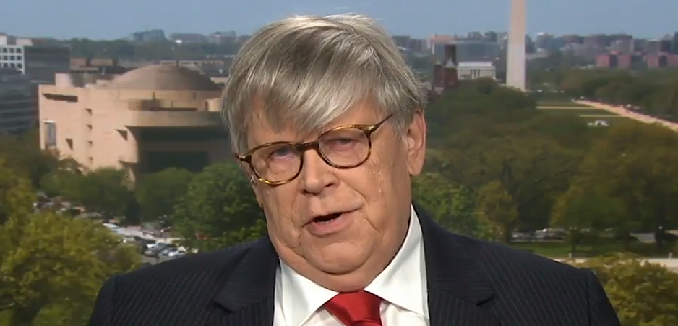A former deputy director of the International Atomic Energy Agency (IAEA) warned Wednesday that Iran is capable of producing a nuclear bomb in six to eight months.
Olli Heinonen, who currently serves as a fellow for the Foundation for Defense of Democracies, told Israel’s Army Radio that Israel and the Gulf states “have a reason to worry” about Tehran’s aggressive ambition to acquire nuclear weapon capabilities.
“Iran is actually weaponizing uranium enrichment without making a weapon,” he said. The nuclear expert noted that according to his personal assessment, Iran could produce a nuclear weapon in six to eight months “if they put in their maximum effort.”
In May, Iran informed signatories of the Joint Comprehensive Plan of Action (JCPOA) that it no longer plans to adhere to commitments made in the 2015 nuclear accord. As part of the deal, the country had limits imposed on the quantities of uranium and heavy water it can produce, set at 300 kilograms and 130 tonnes, respectively.
The IAEA said last week that Iran was staying within the limits set by the agreement, although its stockpiles of low-enriched uranium and heavy water were growing.
However, White House national security adviser, John Bolton, observed Wednesday that without more nuclear power plants, it made no sense for the mullah regime to stockpile additional low-enriched uranium other than to seek atomic weapons.
Heinonen echoed those concerns and said that despite insistences from the IAEA, Tehran has not been adhering to the terms of the accord. The JCPOA required Iran to come clean about all of its past nuclear weapons work, but the intelligence showed that Iran had equipment that was used for nuclear weapons work that it never disclosed to the IAEA.
Heinonen and a team of experts – including David Albright, a former weapons inspector and president of the institute for Science and International Security, and Andrea Stricker, a senior policy analyst at the institute – learned from files recovered from Iran’s secret nuclear archive that the Islamic Republic possessed “advanced capabilities” to develop nuclear weapons.
What the experts concluded was that “that Washington and the IAEA were constantly underestimating how close Tehran was to a bomb” prior to negotiating the deal that was finalized in 2015.
[Photo: Hannah Vaughan Jones / YouTube]




